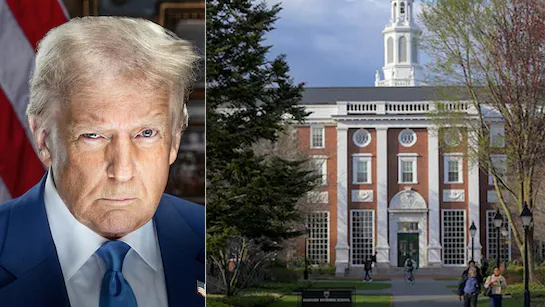In a move that has sparked significant debate, former President Donald Trump’s administration took steps to restrict international students from attending Harvard University and other prestigious institutions. Businessman and TV personality Kevin O’Leary recently weighed in on the issue, warning that this policy could lead to unintended and severe consequences.
What’s at Stake with International Students at Harvard?
International students are a vital part of Harvard’s ecosystem. They contribute not just tuition dollars but also drive innovation, cultural exchange, and global networking. Harvard benefits greatly from attracting top minds worldwide, many of whom go on to become leaders in business, technology, and research. Blocking these students could disrupt this dynamic.
Kevin O’Leary’s Perspective
Kevin O’Leary is known for his straightforward take on business and policy. He argues that barring international students from Harvard isn’t just a political statement—it could backfire economically and socially. According to O’Leary, restricting access to such institutions diminishes America’s competitive edge in the global talent pool.
O’Leary points out that international students often stay and contribute to the U.S. economy long after graduation, founding startups, filling critical roles in tech and medicine, and driving innovation. Limiting their opportunities could mean losing out on this valuable human capital.
Broader Implications of the Policy
Trump’s policy, aimed at controlling immigration and prioritizing American students, might seem straightforward on paper. But in practice, it risks alienating top-tier international applicants, pushing them to universities in other countries. This shift could damage America’s reputation as a global education leader.
Harvard, in particular, has a long history of fostering diverse student bodies that help maintain its world-class status. Removing or limiting international students challenges this tradition and could lower the quality and global perspective that Harvard prides itself on.
What Does This Mean for the Future?
O’Leary warns that such policies could have ripple effects beyond just Harvard. Other universities may follow suit or face similar restrictions, reducing the flow of global talent into the U.S. This could slow innovation and economic growth in critical sectors.
Moreover, the move might strain diplomatic relationships, as education often serves as a bridge between countries. International students not only learn but also build networks and cultural understanding that benefit everyone.
Conclusion
Kevin O’Leary’s argument about Trump blocking Harvard from taking international students is a reminder that policies targeting education and immigration carry complex consequences. The loss isn’t just about fewer students on campus—it’s about diminished innovation, economic impact, and America’s standing in the global knowledge economy. For a country that has long prided itself on being a destination for the best and brightest, this policy risks closing the door on future opportunities.



